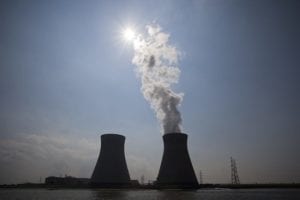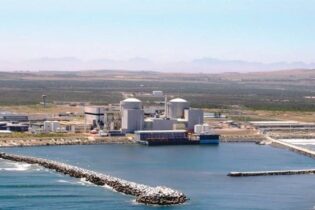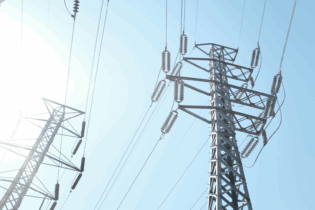 South Africa narrowly escaped junk status earlier this year, however economists maintain the view that the country is on the tip of an economic meltdown. Government however remains positive and ambitious concerning its nuclear power programme.
South Africa narrowly escaped junk status earlier this year, however economists maintain the view that the country is on the tip of an economic meltdown. Government however remains positive and ambitious concerning its nuclear power programme.
SA is in desperate need of more power and with an ever tightening noose around the country’s budget, many who have opposed SA’s nuclear programme are adamant that the country cannot afford a nuclear energy in the mix.
The developments of government’s proposed nuclear power stations are estimated to cost the country more than a trillion rand.
As part of the government’s plans to add 9,600MW of energy to the national grid, Energy Minister Tina Joemat-Pettersson, suggested earlier this month that Eskom fund the construction of the new nuclear power stations, taking the pressure of Treasury to do so.
Joemat-Pettersson also assured MPs that the nuclear build programme would be transparent and free of corruption.
Eskom weighed in on the situation and said that although the construction of several new nuclear power stations would be costly for SA, no number has yet been given, running expenses would cost less if alternative energy sources contributed to the national grid.
The power utility also said that based on past experiences, the country was well-equipped to host nuclear power stations as it had a ‘nuclear safety culture’. Eskom cited Koeberg’s successful operation of 32 years as an example that nuclear power was safe for SA.
Advantages and disadvantages of nuclear power
Some of the advantages include:
- Nuclear power is considered more carbon neutral, compared to crude oil, coal, natural gas, or heavy oils
- Nuclear power produces less greenhouse gas emissions
Disadvantages include:
- The hazard of radioactive waste being emitted into the atmosphere. This can have harmful health effects for thousands of years
- Possible nuclear reactor accidents
- Nuclear fuels are non-renewable energy resources
- Nuclear waste is radioactive for thousands of years
Will the programme fail?
If the financing and construction of nuclear power plants go according to plan, the first nuclear power plant will produce energy by 2023, according to the Department of Energy.
Government said it would not proceed with the programme if costs escalated to more than R130 bn per nuclear reactor.
Steve Thomas, a professor at the University of Greenwich, said that the latest cost estimates of the nuclear programme are approximately 25% higher than this. “This means that if the South African government sticks to its promise, the tender will fail,” he said.
 South Africa narrowly escaped junk status earlier this year, however economists maintain the view that the country is on the tip of an economic meltdown. Government however remains positive and ambitious concerning its nuclear power programme.
South Africa narrowly escaped junk status earlier this year, however economists maintain the view that the country is on the tip of an economic meltdown. Government however remains positive and ambitious concerning its nuclear power programme.






